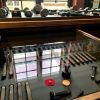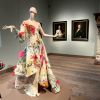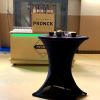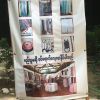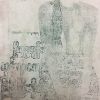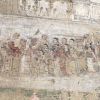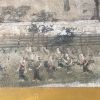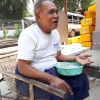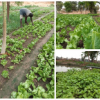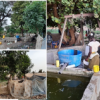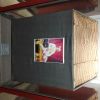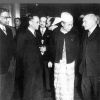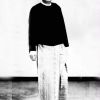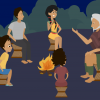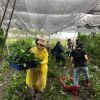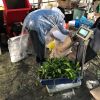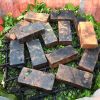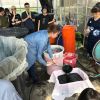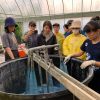The search found 12 results in 0.024 seconds.
Search results
“Laken” means woollen fabric or cloth. Weaving became the main economy for Leiden in the 17th century and the city became the working center. The city was populated due to the availability of works in the weaving industry. During the Dutch Golden Age, Leiden cloth was imported via Amsterdam, made quality cloth, national uniforms and the process was carried out by people of all ages of the city, from as young as 4 years old to and old person. To secure the quality of products which was the prestige of the city, they built the Lakenhal in 1641.
The Saunders Art, Gallery and Museum were opened on the August 2, 2004 to commemorate the 90th anniversary of the Saunders Weaving and Vocational Institute. It was supported by the Small Scale Industries Department (Myanmar) and Kanasarwa College (Japan). The objectives of establishing the museum were to develop vocational school studies and small scale industries in rural area. There are three rooms: museum, demonstration room and gallery.
This photo is from a book, Lunyakyaw-kyo-gyi acheik / လွန်းရာကျော်ကြိုးကြီးချိတ်, written by U Shwe Htun about the textile industry and textile design. It is a good source to understand the history of acheik, its evolution, the process and preservation till 2005. One of the interesting part of the history, as mentioned in the book, is the different attitudes of the reigning regime towards this weaving practice. For example, while acheik was not allowed to be woven in the Bagan period, but in the Innwa period (1346-1526 C.E.) only a lower quality was woven.
Let's build this up together
Let's build this together
This oral narrative was collected by the students exploring the word concept - belief.
The seventy-two year old father of the fried-fish seller told us the following story related with the establishment of the U Pein bridge:
"I left the monastery long time ago but I remember what I learnt about the history of the U Pein bridge"
အင်းကအော်ညီး ဆောက်လုပ်ပြီး၊ ဉီးပိန် တံတားကြီး
အင်း၀ရေငံ တွင်းဂျီးစော်နံ၊ တောင်သမန် ရေချိုတွင်း သောက်ပါလေ့ ကို ရန်ကင်း ဘေးရန်က ရှင်း
ဘရူရာဇာ (ထန်းပင်) မည်သော ထန်းပဒေသာပင်များ ခြံရံလျက်ရှိသောနေရာများကို ရွေးချယ်ခဲ့သည်။
When we bought the plants, we met Mbaye, who has a real garden where he grows vegetables and fruit trees. I was impressed by his knowledge, his courage, and his ability to maintain by irrigation this very beautiful and green garden, in an arid area where it only rains for three months.
The luntaya acheik garments have been wearing wemen as well as men since the monarchy times. Concerning with the acheik garment for men, Ms. Sandy Moe who is a MA second year student of Department of Anthropology at University of Mandalay said:
Nagaland is home to nearly two million people consisting of 16 constituent major tribes that speak over 89 dialects (mostly mutually unintelligible between two tribes) and are without a common language and script.
According to the most famous legend regarding the Naga script, it was given to the people on animal skin which, when nobody was looking, was eaten by a dog leading to the script being lost forever. Certain variations to the legend also claim that the Assamese script was given on stone for which it endured as against the Naga script on animal hide which perished.
Traditional handicrafts are a kind of embodied local knowledge, so does indigo. On the course of "Blue Across Boarders", students had a chance to talk with artisan Tang Wen-chun (湯文君), who is also an educator, motivator and researcher on indigo. Tang introduced the plants of indigo which are harvested in her farm, the practice she was conducting on also the process and tips for harvesting plants of indigo. Students had a field visit to the farm that grows the plants of indigo dye.
This is a play song from Kokrajar, Assam, India. Elders enact this with the children. The rough translation of the song is:
Rice cook … cook… cook…
Curry cook … cook… cook
Will you eat … will you eat … will you eat?
Keep for dinner also okay?
Lets go to plant rice now
Let’s make alli now
Let’s break alli
Let’s plant plant
Now let’s go to catch crabs from the holes
No way this side…no way that side… what about this side jogo…jogo…jogo!

